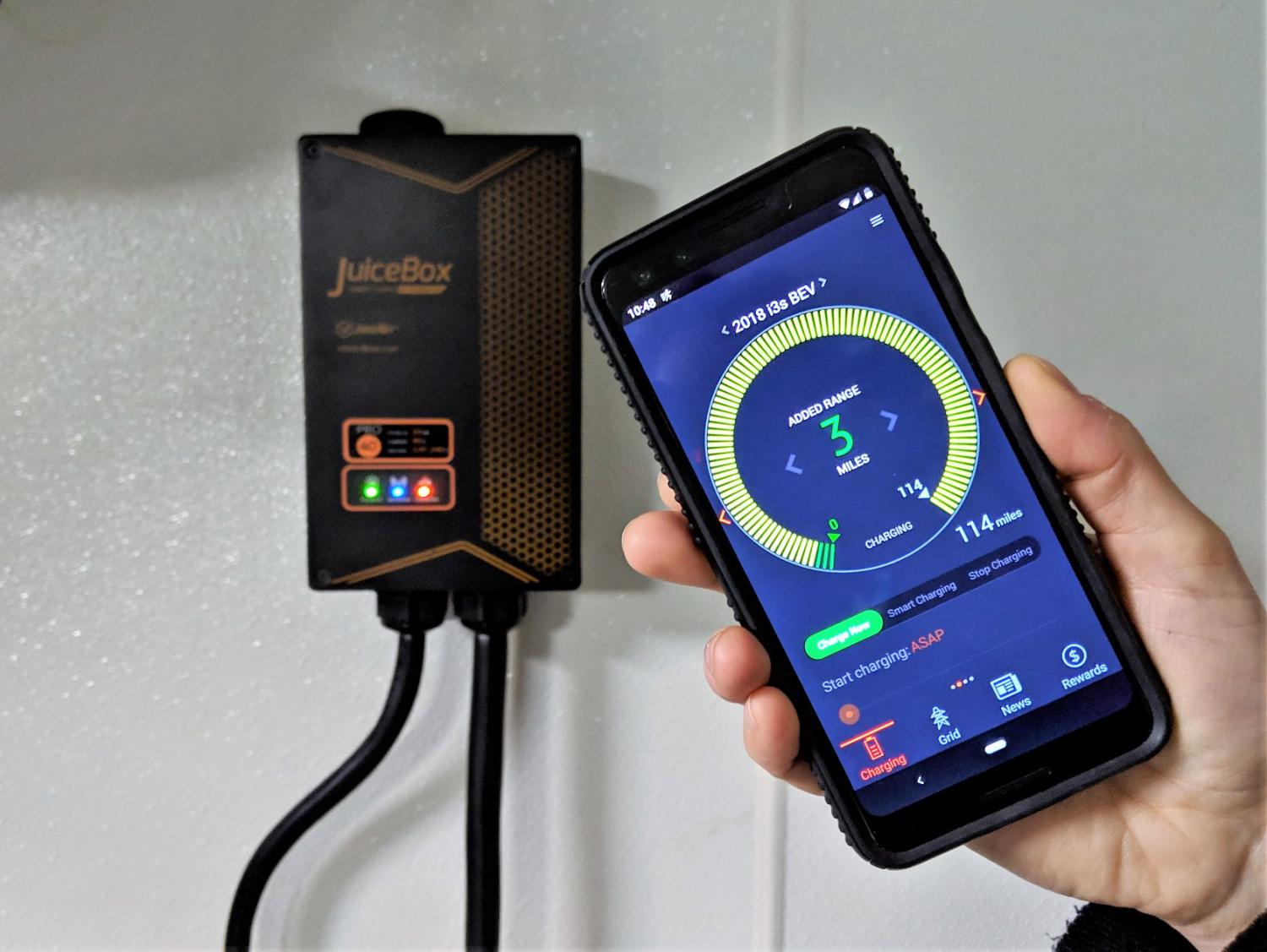
If you want people to use your product or service, you’d better make it convenient, and that’s the thinking behind eMotorWerks’ EV charging at home JuicePlan - the company’s new home electric vehicle (EV) charging-as-a-service offering.
Silicon Valley's eMotorWerks, part of Italy-based Enel Group, has been a market leader in the provision of home EV charging stations. Their level 2 JuiceBox 40 has been a bestseller in the EV charging category on Amazon for the last five years.
However, despite this success, the company identified that one of the pain points of EV ownership is establishing a home charging infrastructure, so they set about devising a turnkey solution to make life easier for potential EV customers.
Prospective EV owners often voice concerns over such things as whether their home is wired to support level 2 fast charging, how to go about securing permitting, not to mention knowing where to go to source someone who can do the installation. In addition, consumers are faced with potentially variable costs beyond just the hardware itself in terms of getting a system up and running.
JuicePlan aims to be a one stop shop to sweep aside all those concerns with its EV charging at home plan. For a flat fee of $19 per month, they will take care of all the details by installing a charging system in a customer’s home hassle-free. On top of this, JuicePlan customers will enjoy ongoing added value, too.
TriplePundit spoke with Preston Roper of Enel to find out more about the service, and what other benefits JuicePlan customers will enjoy.
Roper explained that JuicePlan brings value to customers because of the company’s underlying cloud based platform, JuiceNet, which brings smart-charging services to consumers, while also bringing benefits to utilities.
Working behind the scenes, JuiceNet communicates with a third party database, tracking by the second where energy to the grid is coming from - be it from coal plants or solar installations - while also tracking real-time wholesale energy costs. At the same time, it collects user data, such as when a customer wants to charge their EV. In this way, Roper says, “JuiceNet is the intermediary between energy generation and demand points,” providing a lot of flexibility to both consumers and utilities alike.
JuicePlan customers, Roper explains, are automatically connected to the JuiceNet cloud network allowing them to customize their charging options.
They are able to do this by going into either an app or the online dashboard and checking the boxes for what they want from the system. By opting into what the company calls JuiceNet Green, customers are able to cue the system to charge their vehicle at times when renewable energy sources are online and powering the grid. The system also helps to manage the time of charging when energy costs are lowest, potentially providing - through the platform - a rebate to the customer.
The utilities benefit too, (as well as community choice aggregators who serve local communities with green-power plans) since JuiceNet helps with the question of power demand-management. For example, with thousands of home charging systems connected to a utility, JuiceNet is able to provide data to them so that they can optimize the time of charging. Load-Shifting, the opportunity to move the time of energy consumption - such as charging an EV - even by a few minutes allows utilities to smooth energy demand throughout the day and allow them to save money, while also optimizing the use of renewables.
Another potential stakeholder group of eMotorWerks’ products are automakers who can leverage the platform for their customers too. eMotorWerks currently has a project with Honda, where the JuiceNet system communicates with Honda’s cloud network, such that customers of Honda’s electric vehicles can benefit from the smart charging tools their system offers.
Roper thinks the ongoing adoption of EVs is inevitable, believing that ultimately electric cars are a superior product to gasoline-powered vehicles especially considering range and battery costs are always improving.
He believes full vehicle-to-grid connectivity, however, where power can be both sent to vehicles from the grid and back again, is still quite some way off in the future - though their system can support that too. Still, the benefits to both consumers and utilities eMotorWerks can offer via JuicePlan in helping to “level-ize the load,” as he puts it, brings many of the same benefits today.
As far as an EV charging at home service offering, Roper believes JuicePlan is unique in terms of providing a turnkey solution from installing the hardware through to providing smart charging services for a flat monthly fee. JuicePlan will initially be available to electric vehicle owners across several markets in California, New York, New Jersey and Maryland.
Image credit: eMotorWerks

Phil Covington holds an MBA in Sustainable Management from Presidio Graduate School. In the past, he spent 16 years in the freight transportation and logistics industry. Today, Phil's writing focuses on transportation, forestry, technology and matters of sustainability in business.














